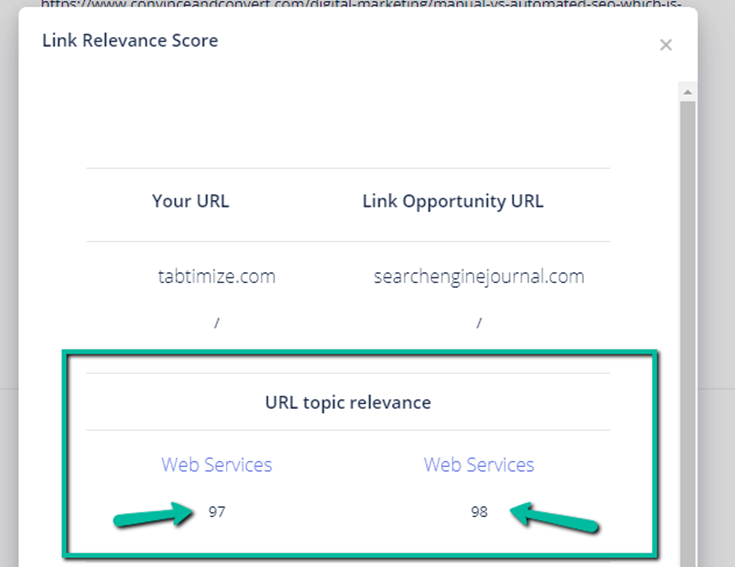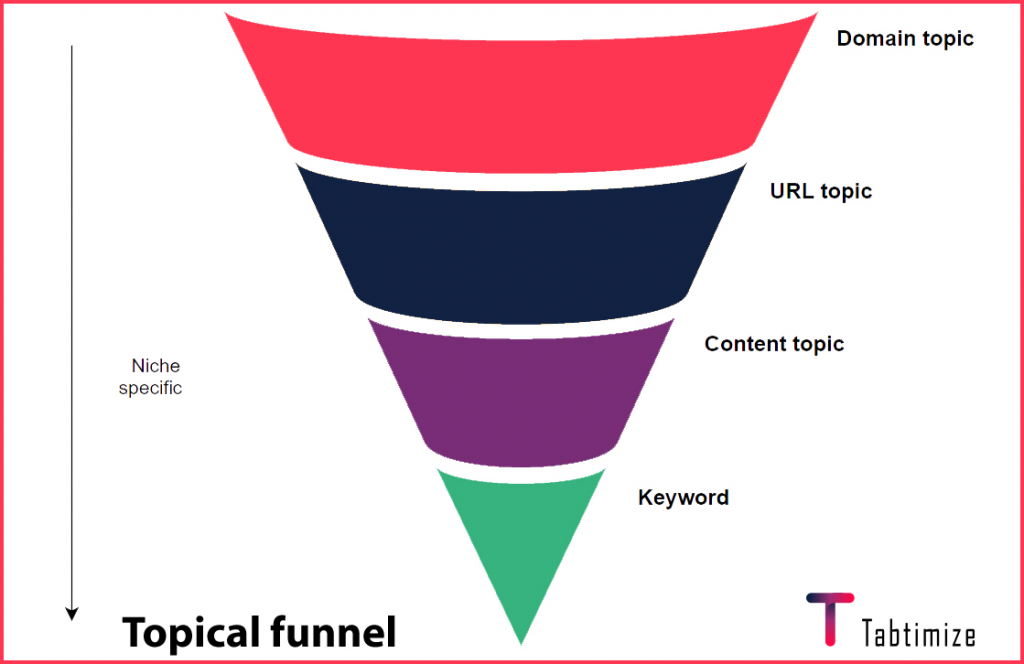One of the most important data points on Tabtimize is the URL topic. This data point forms the basis for understanding the relevance of pages.
What are URL topics
URL topics is the overall topic category that a page’s content is about. URL topics can have different depth levels depending on how specific the page’s given text is written about.
This may be difficult to understand at first glance, so here are some examples.
A text that mentions the caffeine content of food and drink can be displayed URL topic as “food and drink”.

If the same text is now being rewritten to now to a greater extent deals with different beverages with caffeine, the URL topic of that text can be judged to be “beverages”.

If the same text is now being rewritten and to a much greater extent about other forms of soft drinks with caffeine, that URL topic may be displayed as “non alcoholic beverages”.

Finally, if the same text is rewritten to deal with coffee now only, then the URL topic of that text can be displayed as “coffee and tea”.

The URL topic depth relationship will therefore look like this:
Food and Drink -> Beverages -> Non Alcoholic Beverages -> Coffee and Tea
URL topics should because of the above be seen as the broadest sense but still with different depths, depending on how specific a page’s content is.

For this example with SEJ, the URL topics for that page is Web Services, which goes under the topic Internet and Telecom, and for the secondary URL topic, Business Services, which goes under the broader topic Business & Industrial.
A page can have multiple URL topics. However not all are equally important or relevant.
How Tabtimize determine a URL topic
So how do we determine a URL topic and how do we score it.
Well a URL topic is firstly based on the page content as a whole. That means the whole text is processed to determine at least one dominating topic. Usually when there is more than one URL topic that often means that the text is not ultra-specific, and the machine have difficulty predicting only one topic. This is only natural as a lot of web pages content has different written angels to them.
When one or more URL topics has been giving (predicted) by the machine, it also provides the topic with a corresponding confident score and a relevance score, where the confident score tells how sure the machine is that the analyzed text is actually about the predicted topic. I.e. How confident is the machine that the text is about that topic, and the relevance score is assessed as how relevant that text is to that topic.
These two scores are then combined to represent the overall score of that particular page’s URL topic.

The number under URL topic relevance in the LRS break down shows the total score of the matched relevant URL topic.
How should the URL topic be assessed?
You can use the URL topic as the overall niche that the page’s content is written about. The broader the topic the more general the content is about that particular niche.
Keep in mind that its not always the dominant URL topic that has been matched as the one relevant for your page, when assessing link opportunities.
PRO TIP: To quickly see which URL topic is the matching one relevant to your page when assessing link opportunities, you can click on the “LRS” to be shown a breakdown of the relevance relationship between the two pages.

URL topics are the second broadest data point in Tabtimize’s topical funnel.

URL topics can therefore give you an understanding of which overall niche/topic the particular page is about.
